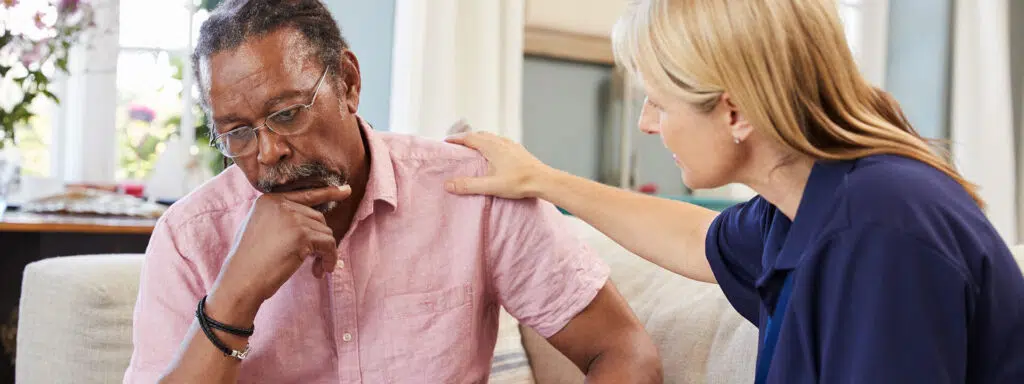Read the latest and greatest from our team
of incredible specialists.

Beach House Recovery Center » Blog » Honoring Veterans With Addiction and PTSD – A Recap of Last Week’s Facebook Live Event
More than 3,000 viewers tuned in for last week’s live Facebook event (December 29) hosted by Beach House Center for Recovery. The final installation for 2017 in our continuing monthly series was dedicated to the many brave veterans who, in addition to serving our country, now battle addiction and mental health issues.
Friday’s discussion was ambitious in scope, covering a wide range of questions from facilitator Micah Robbins and our live audience about the latest research into the prevention and treatment of substance abuse in veterans.
Addiction expert Dr. Nicole Rothman was the featured guest. Dr. Rothman heads the substance abuse program at West Palm Beach VA Medical Center. She is also Vice Chair of the Greater Boynton Beach Chamber of Commerce Health Care Council.
What follow are key highlights from her remarks.

Robbins invited Dr. Rothman to share what substance abuse trends she is seeing among the veteran population and how the VA is responding. Dr. Rothman noted a growing tide of accidental heroin overdoses that has accompanied an overall increase in opiate use—a manifestation of the larger national crisis. In response, and as a preventative measure, Dr. Rothman shared that the VA is making naloxone kits available to veterans and their families.
Given the high prevalence of PTSD among the veteran population, Robbins wanted to know what PTSD treatments, based on Dr. Rothman’s experience, have been most effective at helping vets recover from PTSD and co-occurring substance abuse. Dr. Rothman emphasized one program in particular that the VA employs: “Seeking Safety,” a time-limited therapy group that focuses on helping veterans develop coping skills specific for PTSD and substance abuse.
“Evidence-based treatment” means that “the treatments have been studied and there’s a lot of research backing their effectiveness,” according to Dr. Rothman. She was quick to share how the VA’s use of evidence-based treatments—those interventions “that are most effective” at treating addiction— has led to measurable improvements in outcome. Specifically, “as vets progress through the program and are applying the skills they’re being taught,” they are:
Learn more about how the latest treatments for PTSD and addiction are helping returning vets find hope and recovery, in this unabridged video from the FB Live event. If you or a Veteran you know are struggling with substance abuse, call our Veteran’s addiction treatment center in Florida today at (855) 402-8511 to hear how we can help.
Whether you’re researching for yourself or a loved one, Beach House can help. We understand that this is a serious time in your life and that the treatment center you choose matters. We want you to feel comfortable and empowered to make the right decision for yourself, a friend, or a family member. This is why a counselor is waiting and available to answer your questions and help put your mind at ease regarding the next steps. Many of the staff at Beach House have walked in your shoes. If you feel you’re ready or want more information about how to help a loved one, we can help today. You can also learn why we are voted the #1 rehab for addiction treatment in Florida.
We accept most major insurance plans and can verify your benefits quickly and confidentially.
We’re committed to helping you access the care you need, our admissions counselors can guide you through your coverage options and available resources.





"*" indicates required fields